Walt Whitman
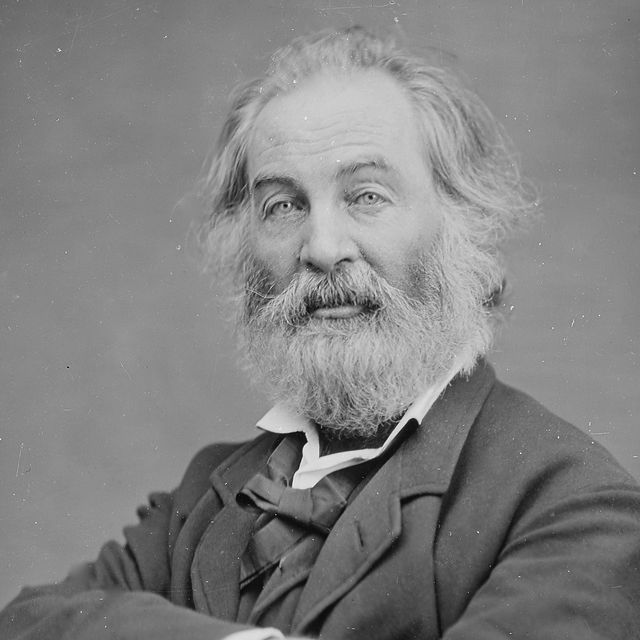
(1819-1892)

Who Was Walt Whitman?
Considered one of America's most influential poets, Walt Whitman aimed to transcend traditional epics and eschew normal aesthetic form to mirror the potential freedoms to be found in America. In 1855, he self-published the collection Leaves of Grass ; the book is now a landmark in American literature, though at the time of its publication it was considered highly controversial. Whitman later worked as a volunteer nurse during the Civil War, writing the collection Drum Taps (1865) in connection to the experiences of war-torn soldiers. Having continued to produce new editions of Leaves of Grass along with original works, Whitman died on March 26, 1892, in Camden, New Jersey.
Background and Early Years
Called the "Bard of Democracy" and considered one of America's most influential poets, Walt Whitman was born on May 31, 1819, in West Hills, Long Island, New York. The second of Louisa Van Velsor's and Walter Whitman's eight surviving children, he grew up in a family of modest means. While earlier Whitmans had owned a large parcel of farmland, much of it had been sold off by the time he was born. As a result, Whitman's father struggled through a series of attempts to recoup some of that earlier wealth as a farmer, carpenter and real estate speculator.
Whitman's own love for America and its democracy can be at least partially attributed to his upbringing and his parents, who showed their own admiration for their country by naming Whitman's younger brothers after their favorite American heroes. The names included George Washington Whitman, Thomas Jefferson Whitman and Andrew Jackson Whitman. At the age of three, the young Whitman moved with his family to Brooklyn, where his father hoped to take advantage of the economic opportunities in New York City. But his bad investments prevented him from achieving the success he craved.
At 11, Whitman was taken out of school by his father to help out with household income. He started to work as an office boy for a Brooklyn-based attorney team and eventually found employment in the printing business.
His father's increasing dependence on alcohol and conspiracy-driven politics contrasted sharply with his son's preference for a more optimistic course more in line with his mother's disposition. "I stand for the sunny point of view," he'd eventually be quoted as saying.
Opinionated Journalist
When he was 17, Whitman turned to teaching, working as an educator for five years in various parts of Long Island. Whitman generally loathed the work, especially considering the rough circumstances he was forced to teach under, and by 1841, he set his sights on journalism. In 1838, he had started a weekly called the Long Islander that quickly folded (though the publication would eventually be reborn) and later returned to New York City, where he worked on fiction and continued his newspaper career. In 1846, he became editor of the Brooklyn Daily Eagle , a prominent newspaper, serving in that capacity for almost two years.
Whitman proved to be a volatile journalist, with a sharp pen and a set of opinions that didn't always align with his bosses or his readers. He backed what some considered radical positions on women's property rights, immigration and labor issues. He lambasted the infatuation he saw among his fellow New Yorkers with certain European ways and wasn't afraid to go after the editors of other newspapers. Not surprisingly, his job tenure was often short and had a tarnished reputation with several different newspapers.
In 1848, Whitman left New York for New Orleans, where he became editor of the Crescent . It was a relatively short stay for Whitman—just three months—but it was where he saw for the first time the wickedness of slavery.
Whitman returned to Brooklyn in the autumn of 1848 and started a new "free soil" newspaper called the Brooklyn Freeman , which eventually became a daily despite initial challenges. Over the ensuing years, as the nation's temperature over the slavery question continued to rise, Whitman's own anger over the issue elevated as well. He often worried about the impact of slavery on the future of the country and its democracy. It was during this time that he turned to a simple 3.5 by 5.5 inch notebook, writing down his observations and shaping what would eventually be viewed as trailblazing poetic works.
'Leaves of Grass'
In the spring of 1855, Whitman, finally finding the style and voice he'd been searching for, self-published a slim collection of 12 unnamed poems with a preface titled Leaves of Grass . Whitman could only afford to print 795 copies of the book. Leaves of Grass marked a radical departure from established poetic norms. Tradition was discarded in favor of a voice that came at the reader directly, in the first person, in lines that didn't rely on rigid meter and instead exhibited an openness to playing with form while approaching prose. On the book's cover was an iconic image of the bearded poet himself.
Leaves of Grass received little attention at first, though it did catch the eye of fellow poet Ralph Waldo Emerson , who wrote Whitman to praise the collection as "the most extraordinary piece of wit and wisdom" to come from an American pen.
The following year, Whitman published a revised edition of Leaves of Grass that featured 32 poems, including a new piece, "Sun-Down Poem" (later renamed "Crossing Brooklyn Ferry"), as well as Emerson's letter to Whitman and the poet's long response to him.
Fascinated by this newcomer to the poetry scene, writers Henry David Thoreau and Bronson Alcott ventured to Brooklyn to meet Whitman. Whitman, now living at home and truly the man of the homestead (his father passed away in 1855) resided in the attic of the family house.
By this point, Whitman's family was marked by dysfunction, inspiring a fervent need to escape home life. His heavy-drinking older brother Jesse would eventually be committed to Kings County Lunatic Asylum in 1864, while his brother Andrew was also an alcoholic. His sister Hannah was emotionally unwell and Whitman himself had to share his bed with his mentally handicapped brother.
Alcott described Whitman' as ''Bacchus-browed, bearded like a satyr, and rank" while his voice was heard as "deep, sharp, tender sometimes and almost melting."
Like its earlier edition, this second version of Leaves of Grass failed to gain much commercial traction. In 1860, a Boston publisher issued a third edition of Leaves of Grass . The revised book held some promise, and also was noted for a sensual grouping of poems—the "Children of Adam" series, which explored female-male eroticism, and the "Calamus" series, which explored intimacy between men. But the start of the Civil War drove the publishing company out of business, furthering Whitman's financial struggles as a pirated copy of Leaves came to be available for some time.
Hardships of the Civil War
In later 1862, Whitman traveled to Fredericksburg to search for his brother George, who fought for the Union and was being treated there for a wound he suffered. Whitman moved to Washington, D.C. the next year and found part-time work in the paymaster's office, spending much of the rest of his time visiting wounded soldiers.
This volunteer work proved to be both life-changing and exhausting. By his own rough estimates, Whitman made 600 hospital visits and saw anywhere from 80,000 to 100,000 patients. The work took a toll physically, but also propelled him to return to poetry.
In 1865, he published a new collection called Drum-Taps , which represented a more solemn realization of what the Civil War meant for those in the thick of it as seen with poems like "Beat! Beat! Drums!" and "Vigil Strange I Kept on the Field One Night." A follow-up edition, Sequel , was published the same year and featured 18 new poems, including his elegy on President Abraham Lincoln , "When Lilacs Last in the Dooryard Bloom'd.
Peter Doyle and Later Years
In the immediate years after the Civil War, Whitman continued to visit wounded veterans. Soon after the war, he met Peter Doyle, a young Confederate soldier and train car conductor. Whitman, who had a quiet history of becoming close with younger men amidst a time of great taboo around homosexuality, developed an instant and intense romantic bond with Doyle. As Whitman's health began to unravel in the 1860s, Doyle helped nurse him back to health. The two's relationship experienced a number of changes over the ensuing years, with Whitman believed to have suffered greatly from feeling rejected by Doyle, though the two would later remain friends.
In the mid-1860s, Whitman had found steady work in Washington as a clerk at the Indian Bureau of the Department of the Interior. He continued to pursue literary projects, and in 1870, he published two new collections, Democratic Vistas and Passage to India , along with a fifth edition of Leaves of Grass .
But in 1873 his life took a dramatic turn for the worse. In January of that year, he suffered a stroke that left him partially paralyzed. In May he traveled to Camden, New Jersey, to see his ailing mother, who died just three days after his arrival. Frail himself, Whitman found it impossible to continue with his job in Washington and relocated to Camden to live with his brother George and sister-in-law Lou.
Over the next two decades, Whitman continued to tinker with Leaves of Grass . An 1882 edition of the collection earned the poet some fresh newspaper coverage after a Boston district attorney objected to and blocked its publication. That, in turn, resulted in robust sales, enough so that Whitman was able to buy a modest house of his own in Camden.
These final years proved to be both fruitful and frustrating for Whitman. His life's work received much-needed validation in terms of recognition, especially overseas, as over the course of his career many of his contemporaries had viewed his output as prurient, distasteful and unsophisticated. Yet even as Whitman felt new appreciation, the America he saw emerge from the Civil War disappointed him. His health, too, continued to deteriorate.
Death and Legacy
On March 26, 1892, Whitman passed away in Camden. Right up until the end, he'd continued to work with Leaves of Grass , which during his lifetime had gone through many editions and expanded to some 300 poems. Whitman's final book, Good-Bye, My Fancy , was published the year before his death. He was buried in a large mausoleum he had built in Camden's Harleigh Cemetery.
Despite the previous outcry surrounding his work, Whitman is considered one of America's most groundbreaking poets, having inspired an array of dedicated scholarship and media that continues to grow. Books on the writer include the award-winning Walt Whitman's America: A Cultural Biography (1995), by David S. Reynolds, and W alt Whitman: The Song of Himself (1999), by Jerome Loving.
QUICK FACTS
- Name: Walt Whitman
- Birth Year: 1819
- Birth date: May 31, 1819
- Birth State: New York
- Birth City: West Hills
- Birth Country: United States
- Gender: Male
- Best Known For: Walt Whitman was an American poet whose verse collection 'Leaves of Grass' is a landmark in the history of American literature.
- Journalism and Nonfiction
- Fiction and Poetry
- Astrological Sign: Gemini
- Death Year: 1892
- Death date: March 26, 1892
- Death State: New Jersey
- Death City: Camden
- Death Country: United States
We strive for accuracy and fairness.If you see something that doesn't look right, contact us !
CITATION INFORMATION
- Article Title: Walt Whitman Biography
- Author: Biography.com Editors
- Website Name: The Biography.com website
- Url: https://www.biography.com/authors-writers/walt-whitman
- Access Date:
- Publisher: A&E; Television Networks
- Last Updated: September 15, 2022
- Original Published Date: April 2, 2014
- I am as bad as the worst, but, thank God, I am as good as the best.
- Have you learned lessons only of those who admired you, and were tender with you, and stood aside for you? Have you not learned great lessons from those who rejected you, and braced themselves against you, or disputed the passage with you?
- I celebrate myself, and sing myself,And what I assume you shall assume,For every atom belonging to me as good belongs to you.
- I sing the body electric,The armies of those I love engirth me and I engirth them,They will not let me off till I go with them, respond to them,And discorrupt them, and charge them full with the charge of the soul.
- I think I could turn and live with the animals. They are so placid and self-contained. They do not sweat and whine about their condition. Not one is dissatisfied. Not one is demented with the mania of owning things. Not one is disrespectful or unhappy over the world.

A Huge Shakespeare Mystery, Solved
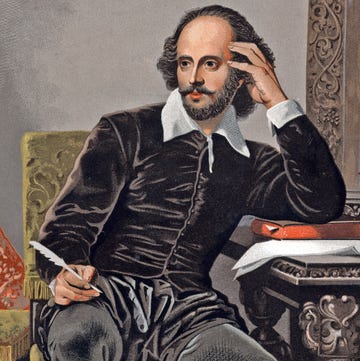
How Did Shakespeare Die?
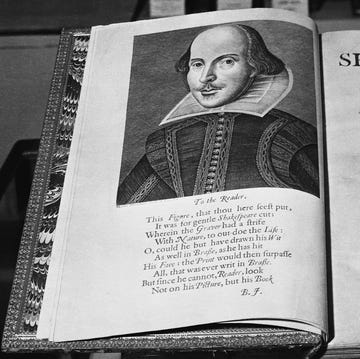
20 Shakespeare Quotes

William Shakespeare
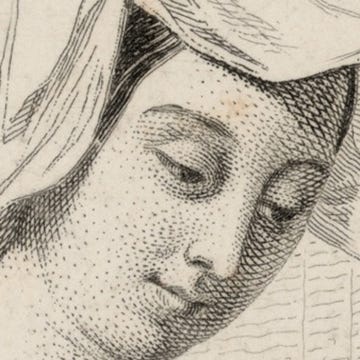
Christine de Pisan
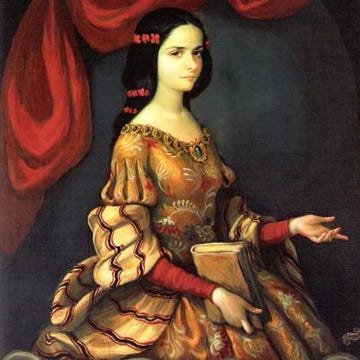
Sor Juana Inés de la Cruz
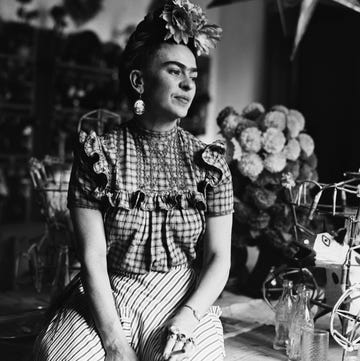
14 Hispanic Women Who Have Made History
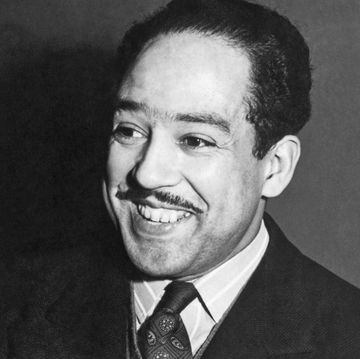
10 Famous Langston Hughes Poems

5 Crowning Achievements of Maya Angelou

Amanda Gorman
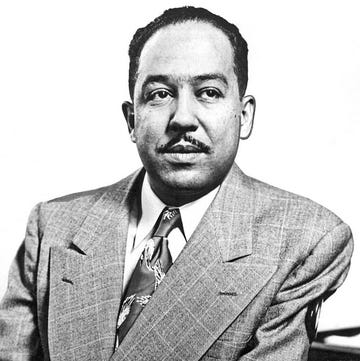
Langston Hughes
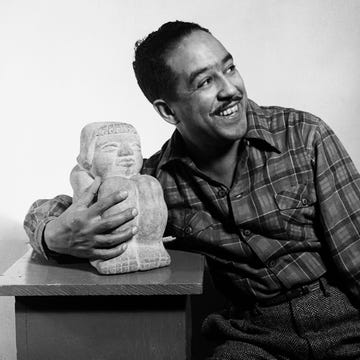
7 Facts About Literary Icon Langston Hughes
- National Poetry Month
- Materials for Teachers
- Literary Seminars
- American Poets Magazine
Main navigation
- Academy of American Poets
User account menu

Search more than 3,000 biographies of contemporary and classic poets.
Page submenu block
- literary seminars
- materials for teachers
- poetry near you
Walt Whitman
Walt Whitman was born on May 31, 1819, in West Hills, on Long Island, New York. He was the second son of Walter Whitman, a house-builder, and Louisa Van Velsor. In the 1820s and 1830s, the family, which consisted of nine children, lived in Long Island and Brooklyn, where Whitman attended the Brooklyn public schools.
At the age of twelve, Whitman began to learn the printer’s trade and fell in love with the written word. Largely self-taught, he read voraciously, becoming acquainted with the works of Homer , Dante , Shakespeare , and the Bible.
Whitman worked as a printer in New York City until a devastating fire in the printing district demolished the industry. In 1836, at the age of seventeen, he began his career as teacher in the one-room schoolhouses of Long Island. He continued to teach until 1841, when he turned to journalism as a full-time career. He founded a weekly newspaper, The Long-Islander , and later edited a number of Brooklyn and New York papers, including the Brooklyn Daily Eagle . In 1848, Whitman left the Brooklyn Daily Eagle to become editor of the New Orleans Crescent for three months. After witnessing the auctions of enslaved individuals in New Orleans, he returned to Brooklyn in the fall of 1848 and co-founded a “free soil” newspaper, the Brooklyn Freeman , which he edited through the next fall. Whitman’s attitudes about race have been described as “ unstable and inconsistent .” He did not always side with the abolitionists , yet he celebrated human dignity.
In Brooklyn, Whitman continued to develop the unique style of poetry that later so astonished Ralph Waldo Emerson . In 1855, Whitman took out a copyright on the first edition of Leaves of Grass , which consisted of twelve untitled poems and a preface. He published the volume himself, and sent a copy to Emerson in July of 1855. Whitman released a second edition of the book in 1856, containing thirty-two poems, a letter from Emerson praising the first edition, and a long open letter by Whitman in response. During his lifetime, Whitman continued to refine the volume, publishing several more editions of the book. Noted Whitman scholar, M. Jimmie Killingsworth writes that “the ‘merge,’ as Whitman conceived it, is the tendency of the individual self to overcome moral, psychological, and political boundaries. Thematically and poetically, the notion dominates the three major poems of 1855: ‘ I Sing the Body Electric ,’ ‘ The Sleepers ,’ and ‘Song of Myself,’ all of which were merged in the first edition under the single title ‘Leaves of Grass’ but were demarcated by clear breaks in the text and the repetition of the title.”
At the outbreak of the Civil War, Whitman vowed to live a “purged” and “cleansed” life. He worked as a freelance journalist and visited the wounded at New York City–area hospitals. He then traveled to Washington, D.C. in December 1862 to care for his brother, who had been wounded in the war.
Overcome by the suffering of the many wounded in Washington, Whitman decided to stay and work in the hospitals; he ended up staying in the city for eleven years. He took a job as a clerk for the Bureau of Indian Affairs within the Department of the Interior, which ended when the Secretary of the Interior, James Harlan, discovered that Whitman was the author of Leaves of Grass , which Harlan found offensive. After Harlan fired him, he went on to work in the attorney general's office.
In 1873, Whitman suffered a stroke that left him partially paralyzed. A few months later he travelled to Camden, New Jersey, to visit his dying mother at his brother’s house. He ended up staying with his brother until the 1882 publication of Leaves of Grass (James R. Osgood), which brought him enough money to buy a home in Camden.
In the simple two-story clapboard house, Whitman spent his declining years working on additions and revisions to his deathbed edition of Leaves of Grass (David McKay, 1891–92) and preparing his final volume of poems and prose, Good-Bye My Fancy (David McKay, 1891). After his death on March 26, 1892, Whitman was buried in a tomb he designed and had built on a lot in Harleigh Cemetery.
Along with Emily Dickinson , he is considered one of America’s most important poets.
Related Poets
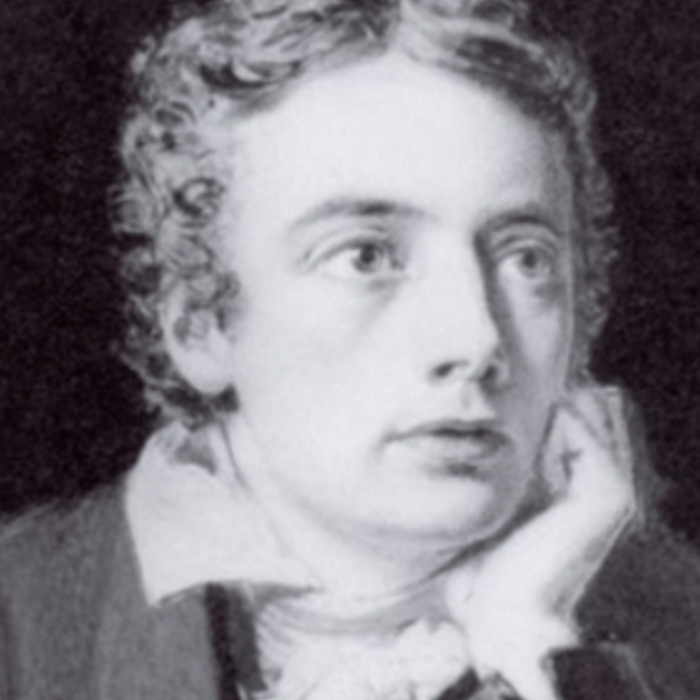
William Wordsworth
William Wordsworth, who rallied for “common speech” within poems and argued against the poetic biases of the period, wrote some of the most influential poetry in Western literature, including his most famous work, The Prelude , which is often considered to be the crowning achievement of English romanticism.
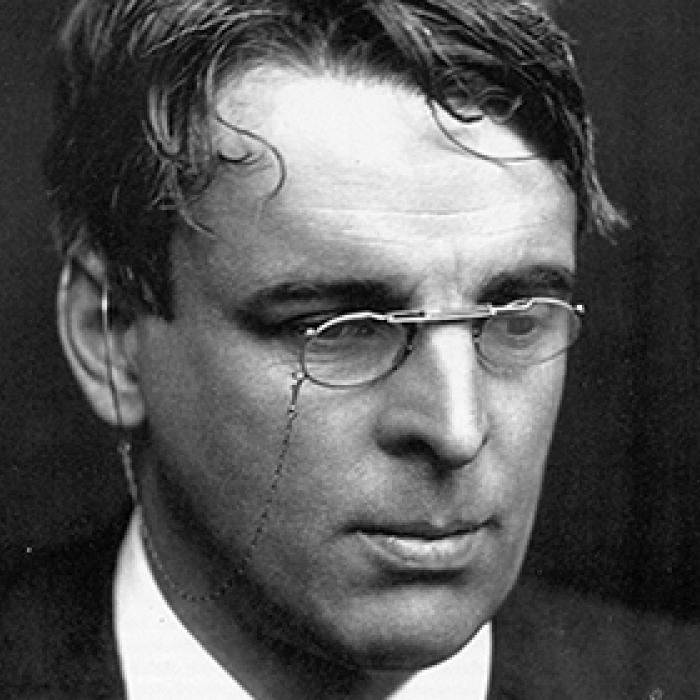
W. B. Yeats
William Butler Yeats, widely considered one of the greatest poets of the English language, received the 1923 Nobel Prize for Literature. His work was greatly influenced by the heritage and politics of Ireland.
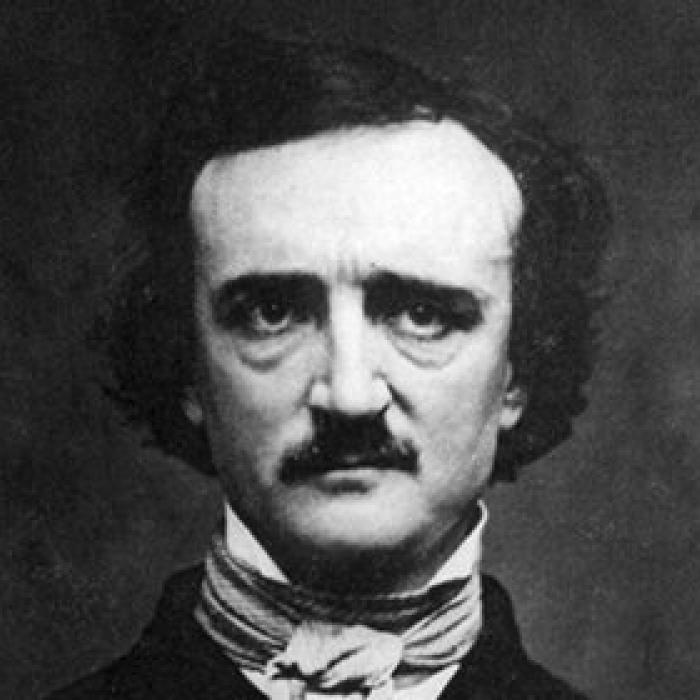
Edgar Allan Poe
Born in 1809, Edgar Allan Poe had a profound impact on American and international literature as an editor, poet, and critic.
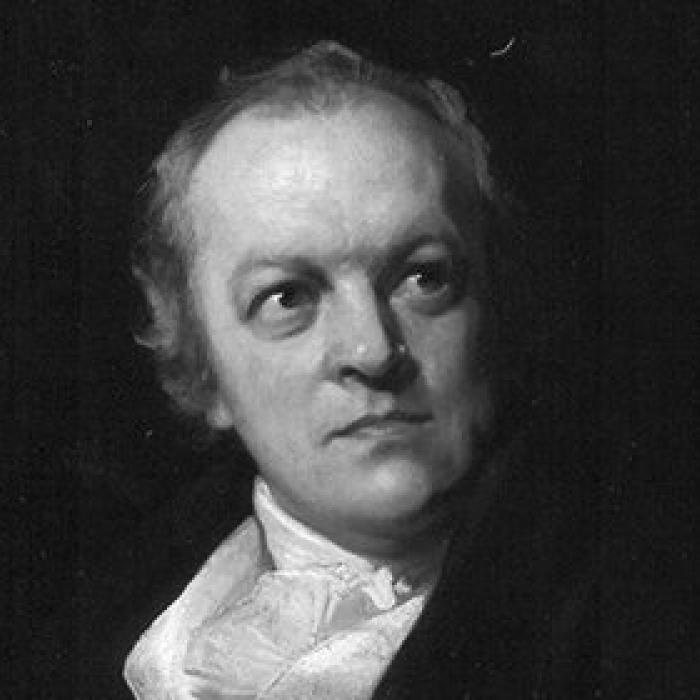
William Blake
William Blake was born in London on November 28, 1757, to James, a hosier, and Catherine Blake. Two of his six siblings died in infancy. From early childhood, Blake spoke of having visions—at four he saw God "put his head to the window"; around age nine, while walking through the countryside, he saw a tree filled with angels.
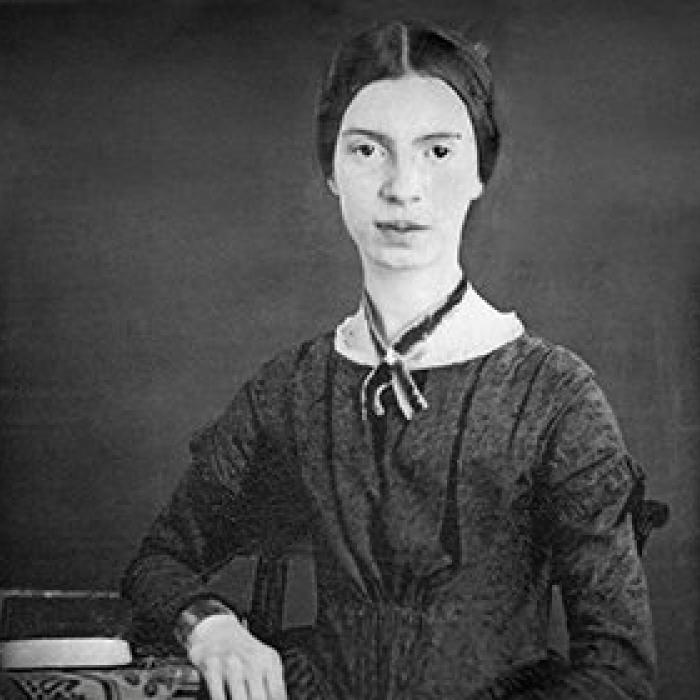
Emily Dickinson
Emily Dickinson was born on December 10, 1830, in Amherst, Massachusetts. While she was extremely prolific as a poet and regularly enclosed poems in letters to friends, she was not publicly recognized during her lifetime. She died in Amherst in 1886, and the first volume of her work was published posthumously in 1890.
Newsletter Sign Up
- Academy of American Poets Newsletter
- Academy of American Poets Educator Newsletter
- Teach This Poem
Biography Online

Walt Whitman Biography
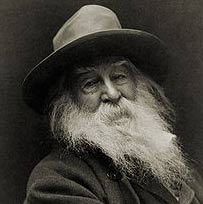
Short bio Walt Whitman
Walt Whitman was born in West Hills, Long Island, US on May 31, 1819. He was the second child in a family of eleven. His parents were Walter Whitman, a housebuilder, and Louisa Van Velsor. Whitman grew up in the Brooklyn district of New York and Long Island. At the age of twelve, Whitman began learning to work as a printer. It was around this time that he discovered a great passion for literature. Largely self-taught, he read voraciously, including works by the great classic writers – Homer, Dante, Shakespeare, and the Bible. After a devastating fire in the printing district of New York, Whitman was left without a job, But, in 1836, at the age of 17, he began his career as a teacher in the one-room school houses of Long Island. He continued to teach until 1841 when he turned to journalism as a full-time career. He founded a weekly newspaper, Long-Islander, and later edited a number of Brooklyn and New York papers. In 1848, Whitman left the Brooklyn Daily Eagle to become editor of the New Orleans Crescent. In New Orleans, he became witness to the practice of slavery in the city and was repulsed by what he saw. Whitman opposed the extension of slavery, though did not always support the abolitionists, over concerns about their commitment to democracy. He closely followed politics throughout his life.
He returned to Brooklyn in the fall of 1848, where he founded a “free soil” newspaper, the Brooklyn Freeman. As well as journalism, Whitman became absorbed in poetry, writing a unique and distinctive style. In 1855, he finished his seminal work ‘Leaves of Grass’, which consisted of twelve sections.
I celebrate myself, and sing myself, And what I assume you shall assume, For every atom belonging to me as good belongs to you.
– Leaves of Grass, Walt Whitman
He published the volume himself and sent a copy to Ralph Waldo Emerson in July of 1855. Emerson was one of America’s leading writers and free thinkers. He was astonished by the unique style of Whitman.
“I am not blind to the worth of the wonderful gift of “Leaves of Grass.” I find it the most extraordinary piece of wit and wisdom that America has yet contributed. I am very happy in reading it, as great power makes us happy.”
– Ralph Waldo Emerson to Walt Whitman 1855.
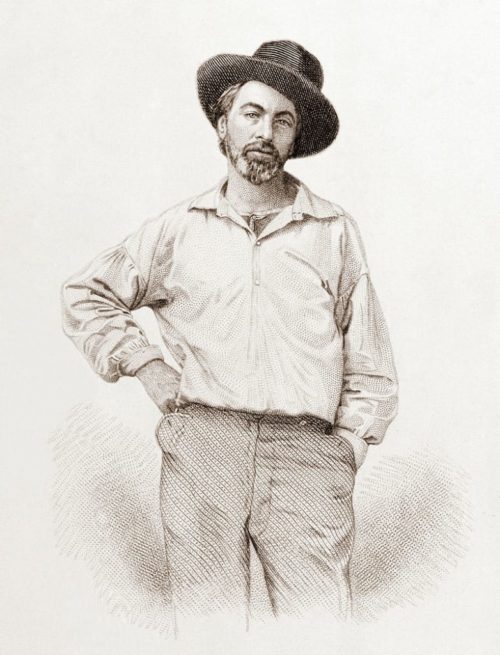
Walt Whitman, aged 35.
He praised the volume extensively, and this helped Whitman gain greater recognition. In 1856, he released a second edition, containing thirty-three poems, a letter from Emerson praising the first edition, and a long open letter by Whitman in response. During his subsequent career, Whitman continued to refine the volume, publishing several more editions of the book.
At the outbreak of the Civil War, Whitman wrote “Beat! Beat! Drums!” a patriotic poem and rally call for the North. During the war, he wrote freelance journalism and visited the wounded around New York hospitals. In 1862, he traveled to Washington, D.C. to care for his brother who had been wounded in the war. Overcome by the suffering of the many wounded in Washington, Whitman decided to stay and work in the hospitals. His war time experiences left a profound mark on Whitman. He wrote
…I dress the perforated shoulder, the foot with the bullet-wound, Cleanse the one with a gnawing and putrid gangrene, so sickening, so offensive, While the attendant stands behind aside me holding the tray and pail…
– Walt Whitman, The Wound Dresser
However, despite his first hand witness of human suffering, Whitman’s poetry always contained all range of human emotions. He also wrote of joy and the unending capacity of the human spirit.
“O the joy of that vast elemental sympathy which only the human soul is capable of generating and emitting in steady and limitless floods.”
– Walt Whitman, A Song of Joys
Whitman stayed in the city for eleven years. He took a job as a clerk for the Department of the Interior, which ended when the Secretary of the Interior, James Harlan, discovered that Whitman was the author of Leaves of Grass , which Harlan found offensive. Harlan fired the poet.
Whitman struggled to support himself through most of his life. In Washington he lived on a clerk’s salary and modest royalties, and spent any excess money, including gifts from friends, to buy supplies for the patients he nursed. He had also been sending money to his widowed mother and an invalid brother. From time to time, writers both in the states and in England sent him “purses” of money so that he could get by.
Walt Whitman was heavily influenced by Deism – a belief in God without needing an organised religion. In his writings, he suggested that all religions were valid, but he himself did not adhere to one particular creed. This underlying oneness of the Universe is a recurrent theme of Whitman’s poetry.
“Come said the Muse, Sing me a song no poet yet has chanted, Sing me the universal. In this broad earth of ours, Amid the measureless grossness and the slag, Enclosed and safe within its central heart, Nestles the seed perfection.”
– Song of the Universal , Walt Whitman
In the early 1870s, Whitman settled in Camden, where he had come to visit his dying mother at his brother’s house. However, after suffering a stroke, Whitman found it impossible to return to Washington. He stayed with his brother until the 1882 publication of Leaves of Grass gave Whitman enough money to buy a home in Camden. In the simple two-story clapboard house, Whitman spent his declining years working on additions and revisions to a new edition of the book and preparing his final volume of poems and prose, Good-Bye, My Fancy (1891). After his death on March 26, 1892, Whitman was buried in a tomb he designed and had built on a lot in Harleigh Cemetery.
Citation: Pettinger, Tejvan . “Biography of Walt Whitman”, Oxford, UK. www.biographyonline.net , 22nd Jan. 2010. Last updated 10 February 2018.

The Complete Works of Walt Whitman

- The Complete Works of Walt Whitman at Amazon
Whitman Illuminated: Song of Myself

- Whitman Illuminated: Song of Myself at Amazon
Related pages
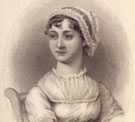
- Walt Whitman Quotes
- Walt Whitman Archive

- Biography / E3-Resources / Excellence in Literature: The Curriculum
Walt Whitman Biography
by EILeditor · Published April 9, 2024 · Updated November 26, 2023
Brief Biography:

Walt Whitman (1819-1892), age 35, frontispiece to Leaves of Grass, Fulton St., Brooklyn, N.Y., 1855, steel engraving by Samuel Hollyer from a lost daguerreotype by Gabriel Harrison.
Walt Whitman, whose full name was Walter Whitman Jr. (May 31, 1819 – March 26, 1892), was an American poet, essayist, and journalist. He is considered one of the most influential poets in American history. Whitman incorporated both transcendentalism and realism in his writings and is often called the father of free verse. His work was controversial in his time, particularly his 1855 poetry collection Leaves of Grass , which was described by some as obscene for its overt sensuality.
Whitman was born in Huntington on Long Island, New York, and lived in Brooklyn as a child and through much of his career. At the age of 11, he left formal schooling to go to work. He worked as a journalist, a teacher, and a government clerk. Whitman’s major poetry collection, Leaves of Grass , first published in 1855, was financed with his own money and became well known. The work was an attempt to reach out to the common person with an American epic. Whitman continued expanding and revising Leaves of Grass until his death in 1892.
During the American Civil War, he went to Washington, D.C., and worked in hospitals caring for the wounded. His poetry often focused on both loss and healing. On the assassination of Abraham Lincoln, whom Whitman greatly admired, he authored two poems, “ O Captain! My Captain! ” and “ When Lilacs Last in the Dooryard Bloom’d “, and gave a series of lectures on Lincoln. After suffering a stroke towards the end of his life, Whitman moved to Camden, New Jersey, where his health further declined. When he died at the age of 72, his funeral was a public event.
Whitman’s influence on poetry remains strong. Art historian Mary Berenson wrote, “You cannot really understand America without Walt Whitman, without Leaves of Grass … He has expressed that civilization, ‘up to date,’ as he would say, and no student of the philosophy of history can do without him.” Modernist poet Ezra Pound called Whitman “America’s poet… He is America.”
Longer Bio: Life and work
Whitman was born on May 31, 1819, in West Hills, town of Huntington, Long Island, in the state of New York. He was the second of nine children born to Quaker parents Walter (1789–1855) and Louisa Van Velsor Whitman (1795–1873). He was immediately nicknamed “Walt” to distinguish him from his father.
Walter Whitman Sr. named three of his seven sons after American leaders: Andrew Jackson, George Washington, and Thomas Jefferson. The oldest was named Jesse. The couple’s sixth son, the youngest, was named Edward. At the age of four, Whitman moved with his family from Huntington to Brooklyn, living in a series of homes, in part due to bad investments.
Whitman looked back on his childhood as generally restless and unhappy, given his family’s difficult economic struggles. One happy moment that he later recalled was when he was lifted in the air and kissed on the cheek by the Marquis de Lafayette during a celebration upon Lafayette’s visit to Brooklyn on July 4, 1825.
At the age of 11, Whitman ended his formal schooling and sought employment to assist his family, which was struggling economically. He was an office boy for two lawyers and later was an apprentice and printer’s devil for the weekly Long Island newspaper the Patriot , edited by Samuel E. Clements. There, Whitman learned about the printing press and typesetting. He may have written “sentimental bits” of filler material for occasional issues.
The following summer Whitman worked for another printer, Erastus Worthington, in Brooklyn. His family moved back to West Hills, New York, on Long Island in the spring, but Whitman remained and took a job at the shop of Alden Spooner, editor of the leading Whig weekly newspaper the Long-Island Star . While at the Star , Whitman became a regular patron of the local library, joined a town debating society, began attending theater performances, and anonymously published some of his earliest poetry in the New-York Mirror .
At the age of 16 in May 1835, Whitman left the Star and Brooklyn. He moved to New York City to work as a compositor though, in later years, Whitman could not remember where. He attempted to find further work but had difficulty, in part due to a severe fire in the printing and publishing district, and in part due to a general collapse in the economy leading up to the Panic of 1837.
In May 1836, he rejoined his family, now living in Hempstead, Long Island. Whitman taught intermittently at various schools until the spring of 1838, though he was not satisfied as a teacher.
Newspaper Career
After his teaching attempts, Whitman returned to Huntington, New York, to found his own newspaper, the Long-Islander . Whitman served as publisher, editor, pressman, and distributor and even provided home delivery. After ten months, he sold the publication to E. O. Crowell, whose first issue appeared on July 12, 1839. There are no known surviving copies of the Long-Islander published under Whitman.
By the summer of 1839, he found a job as a typesetter in Jamaica, Queens, with the Long Island Democrat , edited by James J. Brenton. He left shortly thereafter, and made another attempt at teaching from the winter of 1840 to the spring of 1841.
During this time, Whitman published a series of ten editorials, called “Sun-Down Papers—From the Desk of a Schoolmaster”, in three newspapers between the winter of 1840 and July 1841. In these essays, he adopted a constructed persona, a technique he would employ throughout his career.
Whitman moved to New York City in May, initially working a low-level job at the New World, working under Park Benjamin Sr. and Rufus Wilmot Griswold. He continued working for short periods of time for various newspapers; in 1842 he was editor of the Aurora and from 1846 to 1848 he was editor of the Brooklyn Eagle .
While working for the latter institution, many of his publications were in the area of music criticism, and it is during this time that he became a devoted lover of Italian opera through reviewing performances of works by Bellini, Donizetti, and Verdi. This new interest had an impact on his writing in free verse. He later said, “But for the opera, I could never have written Leaves of Grass .”
Throughout the 1840s, Whitman contributed freelance fiction and poetry to various periodicals, including the Brother Jonathan magazine edited by John Neal. Whitman lost his position at the Brooklyn Eagle in 1848 after siding with the free-soil “Barnburner” wing of the Democratic party against the newspaper’s owner, Isaac Van Anden, who belonged to the conservative, or “Hunker”, wing of the party.
Whitman was a delegate to the 1848 founding convention of the Free Soil Party, which was concerned about the threat slavery would pose to free white labor and northern businessmen moving into the newly colonized western territories. Abolitionist William Lloyd Garrison derided the party philosophy as “white manism”.
In 1852, he serialized a novel titled Life and Adventures of Jack Engle in six installments of New York’s The Sunday Dispatch . In 1858, Whitman published a 47,000 word series called “Manly Health and Training” under the pen name Mose Velsor. Apparently he drew the name Velsor from Van Velsor, his mother’s family name. This self-help guide recommends beards, sunbathing, comfortable shoes, bathing daily in cold water, eating meat almost exclusively, plenty of fresh air, and getting up early each morning.
Leaves of Grass
Whitman claimed that after years of competing for “the usual rewards,” he determined to become a poet. He first experimented with a variety of popular literary genres that appealed to the cultural tastes of the period. As early as 1850, he began writing what would become Leaves of Grass , a collection of poetry that he would continue editing and revising until his death.
Whitman intended to write a distinctly American epic and used free verse with a cadence based on the Bible. At the end of June 1855, Whitman surprised his brothers with the already-printed first edition of Leaves of Grass . George “didn’t think it worth reading.”
Whitman paid for the publication of the first edition of Leaves of Grass himself and had it printed at a local print shop during their breaks from commercial jobs. A total of 795 copies were printed. No author is named; instead, facing the title page was an engraved portrait done by Samuel Hollyer, but 500 lines into the body of the text he calls himself “Walt Whitman, an American, one of the roughs, a kosmos, disorderly, fleshly, and sensual, no sentimentalist, no stander above men or women or apart from them, no more modest than immodest.”
The inaugural volume of poetry was preceded by a prose preface of 827 lines. The succeeding untitled twelve poems totaled 2315 lines with 1336 lines belonging to the first untitled poem, later called “Song of Myself.” The book received its strongest praise from Ralph Waldo Emerson , who wrote a flattering five-page letter to Whitman and spoke highly of the book to friends.
The first edition of Leaves of Grass was widely distributed and stirred up significant interest, in part due to Emerson’s praise, but was occasionally criticized for the seemingly shocking nature of the poetry. Geologist Peter Lesley wrote to Emerson, calling the book “trashy, profane & obscene” and the author “pretentious.” Ignoring this criticism, Whitman chose to emboss a quote from Emerson’s letter, “I greet you at the beginning of a great career,” in gold leaf on the spine of the second edition, effectively inventing the modern book blurb.
On July 11, 1855, a few days after Leaves of Grass was published, Whitman’s father died at the age of 65. In the months following the first edition of Leaves of Grass , critical responses began focusing more on the potentially offensive themes. Though the second edition was already printed and bound, the publisher almost did not release it. In the end, the edition went to retail, with 20 additional poems, in August 1856. Leaves of Grass was revised and re-released in 1860, again in 1867, and several more times throughout the remainder of Whitman’s life. Several well-known writers admired the work enough to visit Whitman, including Amos Bronson Alcott and Henry David Thoreau .
During the first publications of Leaves of Grass , Whitman had financial difficulties and was forced to work as a journalist again, specifically with Brooklyn’s Daily Times starting in May 1857. As an editor, he oversaw the paper’s contents, contributed book reviews, and wrote editorials.
He left the job in 1859, though it is unclear whether he was fired or chose to leave. Whitman, who typically kept detailed notebooks and journals, left very little information about himself in the late 1850s.
Civil War years
As the American Civil War was beginning, Whitman published his poem “Beat! Beat! Drums!” as a patriotic rally call for the Union. Whitman’s brother George had joined the Union army in the 51st New York Infantry Regiment and began sending Whitman several vividly detailed letters of the battle front. On December 16, 1862, a listing of fallen and wounded soldiers in the New-York Tribune included “First Lieutenant G. W. Whitmore”, which Whitman worried was a reference to his brother George.
He made his way south immediately to find him, though his wallet was stolen on the way. “Walking all day and night, unable to ride, trying to get information, trying to get access to big people,” Whitman later wrote. He eventually found George alive, with only a superficial wound on his cheek. Whitman, profoundly affected by seeing the wounded soldiers and the heaps of their amputated limbs, left for Washington, D.C., on December 28, 1862, with the intention of never returning to New York.
In Washington, D.C., Whitman’s friend Charley Eldridge helped him obtain part-time work in the army paymaster’s office, leaving time for Whitman to volunteer as a nurse in the army hospitals. He would write of this experience in “The Great Army of the Sick,” published in a New York newspaper in 1863 and, 12 years later, in a book called Memoranda During the War .
He then contacted Emerson, this time to ask for help in obtaining a government post. Another friend, John Trowbridge, passed on a letter of recommendation from Emerson to Salmon P. Chase, Secretary of the Treasury, hoping he would grant Whitman a position in that department. Chase, however, did not want to hire the author of such a disreputable book as Leaves of Grass .
Family Tragedies
The Whitman family had a difficult end to 1864. On September 30, 1864, Whitman’s brother George was captured by Confederate forces in Virginia, and another brother, Andrew Jackson, died of tuberculosis compounded by alcoholism on December 3. That month, Whitman committed his brother Jesse to the Kings County Lunatic Asylum.
Whitman’s spirits were raised, however, when he finally got a better-paying government post as a low-grade clerk in the Bureau of Indian Affairs in the Department of the Interior, thanks to his friend William Douglas O’Connor. O’Connor, a poet, daguerreotypist, and an editor at The Saturday Evening Post wrote to William Tod Otto, Assistant Secretary of the Interior, on Whitman’s behalf.
Whitman began the new appointment on January 24, 1865, with a yearly salary of $1,200. A month later, on February 24, 1865, George was released from capture and granted a furlough because of his poor health. By May 1, Whitman received a promotion to a slightly higher clerkship and published Drum-Taps .
Effective June 30, 1865, however, Whitman was fired from his job. His dismissal came from the new Secretary of the Interior, former Iowa Senator James Harlan. Though Harlan dismissed several clerks who “were seldom at their respective desks,” he may have fired Whitman on moral grounds after finding an 1860 edition of Leaves of Grass .
O’Connor protested until J. Hubley Ashton had Whitman transferred to the Attorney General’s office on July 1. O’Connor, though, was still upset and vindicated Whitman by publishing a biased and exaggerated biographical study, The Good Gray Poet , in January 1866.
The fifty-cent pamphlet defended Whitman as a wholesome patriot, established the poet’s nickname and increased his popularity. Also aiding in his popularity was the publication of “ O Captain! My Captain !”, a conventional poem on the death of Abraham Lincoln, the only poem to appear in anthologies during Whitman’s lifetime.
Part of Whitman’s role at the Attorney General’s office was interviewing former Confederate soldiers for Presidential pardons. “There are real characters among them,” he later wrote, “and you know I have a fancy for anything out of the ordinary.”
In August 1866, he took a month off to prepare a new edition of Leaves of Grass which would not be published until 1867 after difficulty in finding a publisher. He hoped it would be its last edition.
In February 1868, Poems of Walt Whitman was published in England thanks to the influence of William Michael Rossetti, with minor changes that Whitman reluctantly approved. The edition became popular in England, especially with endorsements from the highly respected writer Anne Gilchrist. Another edition of Leaves of Grass was issued in 1871, the same year it was mistakenly reported that its author died in a railroad accident.
Although Whitman’s international fame was increasing, he remained at the attorney general’s office until January 1872. He spent much of 1872 caring for his mother, who was now nearly eighty and struggling with arthritis. He also traveled and was invited to Dartmouth College to give the commencement address on June 26, 1872.
Health decline and death
After suffering a paralytic stroke in early 1873, Whitman was induced to move from Washington to the home of his brother—George Washington Whitman, an engineer—at 431 Stevens Street in Camden, New Jersey. His mother, having fallen ill, was also there and died that same year in May. Both events were difficult for Whitman and left him depressed.
He remained at his brother’s home until buying his own in 1884. However, before purchasing his home, he spent the greatest period of his residence in Camden at his brother’s home on Stevens Street. While in residence there he was very productive, publishing three versions of Leaves of Grass among other works. He was also last fully physically active in this house, where he received visits from Oscar Wilde and Thomas Eakins. His other brother, Edward, an “invalid” since birth, lived in the house.
When his brother and sister-in-law were forced to move for business reasons, he bought his own house at 328 Mickle Street (now 330 Dr. Martin Luther King Jr. Boulevard). First taken care of by tenants, he was completely bedridden for most of his time in Mickle Street.
During this time, he began socializing with Mary Oakes Davis—the widow of a sea captain. She was a neighbor, boarding with a family in Bridge Avenue just a few blocks from Mickle Street. She moved in with Whitman on February 24, 1885, to serve as his housekeeper in exchange for free rent. She brought with her a cat, a dog, two turtledoves, a canary, and other assorted animals. During this time, Whitman produced further editions of Leaves of Grass in 1876, 1881, and 1889.
While in South Jersey, Whitman spent a good portion of his time in the then quite pastoral community of Laurel Springs, between 1876 and 1884, converting one of the Stafford Farm buildings to his summer home. The restored summer home has been preserved as a museum by the local historical society. Part of his Leaves of Grass was written here, and in his Specimen Days he wrote of the spring, creek and lake. To him, Laurel Lake was “the prettiest lake in either America or Europe.”
As the end of 1891 approached, he prepared a final edition of Leaves of Grass , a version that has been nicknamed the “Deathbed Edition.” He wrote, “L. of G. at last complete—after 33 y’rs of hackling at it, all times & moods of my life, fair weather & foul, all parts of the land, and peace & war, young & old.” Preparing for death, Whitman commissioned a granite mausoleum shaped like a house for $4,000 and visited it often during construction.
Walt Whitman died on March 26, 1892, at his home in Camden, New Jersey at the age of 72. An autopsy revealed his lungs had diminished to one-eighth their normal breathing capacity, a result of bronchial pneumonia, and that an egg-sized abscess on his chest had eroded one of his ribs.
A public viewing of his body was held at his Camden home; more than 1,000 people visited in three hours. Whitman’s oak coffin was barely visible because of all the flowers and wreaths left for him. Four days after his death, he was buried in his tomb at Harleigh Cemetery in Camden.
Another public ceremony was held at the cemetery, with friends giving speeches, live music, and refreshments. Whitman’s friend, the orator Robert Ingersoll, delivered the eulogy. Later, the remains of Whitman’s parents and two of his brothers and their families were moved to the mausoleum.
You can read some Whitman Poetry here on the Excellence in Literature site.
Share this:
- Click to share on Pinterest (Opens in new window)
- Click to share on Facebook (Opens in new window)
- Click to share on LinkedIn (Opens in new window)
- Click to print (Opens in new window)
- Click to email a link to a friend (Opens in new window)
- Click to share on Twitter (Opens in new window)
- Click to share on Reddit (Opens in new window)
Tags: american biography civil war poetry walt whitman
- Next story F. Scott Fitzgerald Biography
- Previous story Calendar of Sonnets by Helen Hunt Jackson
Download our printable newsletter!
Here’s the Everyday Educator — our annual newsletter handout. It has book lists and helpful articles about homeschooling topics. We’d rather be sharing it in person, but for now, you can download the Everyday Educator here. I hope you enjoy it!
New Articles
- General Washington Poem by Phillis Wheatley
- Baroque Art
- America’s Fireside Poets
- Michael Angelo, Drama by Longfellow
- T. S. Eliot on Ulysses by Joyce
Join us on Facebook!
Visit our other sites!
- Doing What Matters — Janice Campbell’s blog on education, entrepreneurship, and soul care
- Everyday Education — Janice Campbell’s Homeschool Website
Excellence in Literature Links
- E1 Context Resources
- E2 Context Resources
- E3 Context Resources
- E4 Context Resources
- E5 Context Resources
- Privacy Policy
- Teachers and Evaluators for Excellence in Literature
- Bookstore / Catalog
Excellence in Literature Awards

Resources by Category
- Study Guide Link Index
- E1: Intro to Lit category archive
- E2: Lit and Comp category archive
- E3: American Lit category archive
- English 4: British Literature category archive
- E5: World Lit category archive
- Audio / Video
- Children’s Literature
- Classics-Based Writing Resource
- Short Stories
- Writer’s Handbook
- Link Updates and News
New Resources
- Audio: The Secret Life of Walter Mitty
- William Cullen Bryant Poems
- N. C. Wyeth Biography
- In Search of Beowulf
- Rubric for Feature Articles
- Entries feed
- Comments feed
- WordPress.org
- Humanities ›
- Literature ›
- Best Sellers ›
- Best Selling Authors ›
Biography of Walt Whitman, American Poet
Library of Congress / public domain
- Best Selling Authors
- Best Seller Reviews
- Book Clubs & Classes
- Classic Literature
- Plays & Drama
- Shakespeare
- Short Stories
- Children's Books
:max_bytes(150000):strip_icc():format(webp)/McNamara-headshot-history1800s-5b7422c046e0fb00504dcf97.jpg)
Walt Whitman (May 31, 1819–March 26, 1892) is one of the most significant American writers of the 19th century, and many critics consider him the nation's greatest poet. His book "Leaves of Grass," which he edited and expanded over the course of his life, is a masterpiece of American literature. In addition to writing poetry, Whitman worked as a journalist and volunteered in military hospitals .
Fast Facts: Walt Whitman
- Known For : Whitman is one of the most famous American poets of the 19th century.
- Born : May 31, 1819 in West Hills, New York
- Died : March 26, 1892 in Camden, New Jersey
- Published Works : Leaves of Grass, Drum-Taps, Democratic Vistas
Walt Whitman was born on May 31, 1819, in the village of West Hills on Long Island, New York, approximately 50 miles east of New York City. He was the second of eight children. Whitman’s father was of English descent, and his mother was Dutch. In later life, he would refer to his ancestors as having been early settlers of Long Island.
In 1822, when Walt was 2 years old, the Whitman family moved to Brooklyn, which was still a small town. Whitman would spend most of the next 40 years of his life in Brooklyn, which grew into a thriving city during that time.
After finishing public school in Brooklyn, Whitman began working at the age of 11. He was an office boy for a law office before becoming an apprentice printer at a newspaper. In his late teens, Whitman worked for several years as a schoolteacher in rural Long Island. In 1838, he founded a weekly newspaper on Long Island. He reported and wrote stories, printed the paper, and even delivered it on horseback. By the early 1840s, he had broken into professional journalism , writing articles for magazines and newspapers in New York.
Early Writings
Early writing efforts by Whitman were fairly conventional. He wrote about popular trends and contributed sketches about city life. In 1842, he wrote the temperance novel "Franklin Evans," which depicted the horrors of alcoholism. In later life, Whitman would denounce the novel as “rot,” but at the time it was a commercial success.
In the mid-1840s, Whitman became the editor of the Brooklyn Daily Eagle , but his political views, which were aligned with the upstart Free Soil Party , eventually got him fired. He then took a job working at a newspaper in New Orleans. While he seemed to enjoy the exotic nature of the city, he was apparently homesick for Brooklyn. The job only lasted a few months.
By the early 1850s he was still writing for newspapers, but his focus had turned to poetry. He often jotted down notes for poems inspired by the busy city life around him.
'Leaves of Grass'
In 1855, Whitman published the first edition of "Leaves of Grass." The book was unusual, as the 12 poems it included were untitled and were set in type (partly by Whitman himself) that looked more like prose than poetry.
Whitman had written a lengthy and remarkable preface, essentially introducing himself as an "American bard." For the frontispiece, he selected an engraving of himself dressed as a common worker. The green covers of the book were embossed with the title “Leaves of Grass.” Curiously, the title page of the book, perhaps because of an oversight, did not contain the author's name.
The poems in the original edition were inspired by the things Whitman found fascinating: the crowds of New York, the modern inventions the public marveled over, and the raucous politics of the 1850s. While Whitman apparently hoped to become the poet of the common man, his book went largely unnoticed.
However, "Leaves of Grass" did attract one major fan. Whitman admired the writer and speaker Ralph Waldo Emerson and sent him a copy of his book. Emerson read it, was greatly impressed, and wrote a letter to Whitman: "I greet you at the beginning of a great career."
Whitman produced approximately 800 copies of the first edition of "Leaves of Grass," and the following year he published a second edition, which contained 20 additional poems.
Evolution of 'Leaves of Grass'
Whitman saw "Leaves of Grass" as his life’s work. Rather than publishing new books of poems, he began a practice of revising the poems in the book and adding new ones in successive editions.
The third edition of the book was issued by a Boston publishing house, Thayer and Eldridge. Whitman traveled to Boston to spend three months in 1860 preparing the book, which contained more than 400 pages of poetry. Some of the poems in the 1860 edition referred to homosexuality, and while the poems were not explicit, they were nonetheless controversial.
In 1861 during the beginning of the Civil War, Whitman’s brother George enlisted in a New York infantry regiment. In December 1862, Walt, believing his brother may have been wounded at the Battle of Fredericksburg , traveled to the front in Virginia.
The proximity to the war, to soldiers, and especially to the wounded had a profound effect on Whitman. He became deeply interested in helping the wounded and began volunteering in military hospitals in Washington. His visits with wounded soldiers would inspire a number of Civil War poems, which he would eventually collect in a book called "Drum-Taps."
As he traveled around Washington, Whitman would often see Abraham Lincoln passing by in his carriage. He had a deep respect for Lincoln and attended the president's second inauguration on March 4, 1865.
Whitman wrote an essay about the inauguration, which was published in The New York Times on Sunday, March 12, 1865. In his dispatch, Whitman noted, as others had, that the day had been stormy up until noon, when Lincoln was scheduled to take the oath of office for the second time. But Whitman added a poetic touch, noting that a peculiar cloud had appeared over Lincoln that day:
"As the President came out on the Capitol portico, a curious little white cloud, the only one in that part of the sky, appeared like a hovering bird, right over him."
Whitman saw significance in the odd weather and speculated that it was a profound omen of some sort. Within weeks, Lincoln would be dead, killed by an assassin (who also happened to be in the crowd at the second inauguration).
By the end of the Civil War, Whitman had found a comfortable job working as a clerk in a government office in Washington. That came to an end when the newly installed secretary of the interior, James Harlan, discovered that his office employed the author of "Leaves of Grass."
With the intercession of friends, Whitman got another federal job, this time serving as a clerk in the Department of Justice. He remained in government work until 1874, when ill health led him to resign.
Whitman’s problems with Harlan actually may have helped him in the long run, as some critics came to his defense. As later editions of "Leaves of Grass" appeared, Whitman became known as “America’s good gray poet.”
Plagued by health problems, Whitman moved to Camden, New Jersey, in the mid-1870s. When he died on March 26, 1892, the news of his death was widely reported. The San Francisco Call , in an obituary published on the front page of the March 27, 1892, paper, wrote:
“Early in life he decided that his mission should be to 'preach the gospel of democracy and of the natural man,' and he schooled himself for the work by passing all his available time among men and women and in the open air, absorbing into himself nature, character, art and indeed all that makes up the eternal universe.”
Whitman was interred in a tomb of his own design in Harleigh Cemetery in Camden, New Jersey.
Whitman’s poetry was revolutionary, both in subject and style. Though considered eccentric and controversial, he eventually became known as “America’s good gray poet.” When he died in 1892 at the age of 72, his death was front-page news across America. Whitman is now celebrated as one of the country's greatest poets, and selections from "Leaves of Grass" are widely taught in schools and universities.
- Kaplan, Justin. "Walt Whitman, a Life." Perennial Classics, 2003.
- Whitman, Walt. "The Portable Walt Whitman." Edited by Michael Warner, Penguin, 2004.
- Walt Whitman and the Civil War
- Biography of Margaret Atwood, Canadian Poet and Writer
- Biography of Louise Erdrich, Native American Author
- Biography of John Updike, Pulitzer Prize Winning American Author
- Biography of Philip Roth, American Novelist, Short-Story Writer
- Biography of Jamie Ford
- Biography of Christopher Isherwood, Novelist and Essayist
- Biography of Mario Vargas Llosa, Peruvian Writer, Nobel Prize Winner
- Biography of Hunter S. Thompson, Writer, Creator of Gonzo Journalism
- Biography of Sherman Alexie, Jr., Prize-Winning Author and Filmmaker
- Biography of Eudora Welty, American Short-Story Writer
- Complete List of Mary Higgins Clark Books
- Henry J. Raymond: Founder of the New York Times
- Biography of Writer and Activist Dave Eggers
- Anne Lamott Biography
- Biography of Paulo Coelho, Brazilian Writer

IMAGES
VIDEO
COMMENTS
Walter Whitman Jr. (/ ˈ hw ɪ t m ə n /; May 31, 1819 – March 26, 1892) was an American poet, essayist, and journalist. He is considered one of the most influential poets in American literature.
Walt Whitman was an American poet, journalist and essayist whose verse collection Leaves of Grass, first published in 1855, is a landmark in the history of American literature. His aim was to transcend traditional epics and to eschew normal aesthetic form.
Considered one of America's most influential poets, Walt Whitman aimed to transcend traditional epics and eschew normal aesthetic form to mirror the potential freedoms to be found in...
Walt Whitman, arguably America's most influential and innovative poet, was born into a working class family in West Hills on Long Island, on May 31, 1819, just thirty years after George Washington was inaugurated as the first president of the newly formed United States.
Walt Whitman - Born on May 31, 1819, Walt Whitman is the author of Leaves of Grass and, along with Emily Dickinson, is considered one of the architects of a uniquely American poetic voice.
Walt Whitman is America’s world poet—a latter-day successor to Homer, Virgil, Dante, and Shakespeare. In Leaves of Grass (1855, 1891-2), he celebrated democracy, nature, love, and friendship. This monumental work chanted praises to the body as well as to the soul, and found beauty and reassurance even in death.
Walt Whitman (1819-1892) was an American journalist and poet, best known for his collection of poems entitled Leaves of Grass, first published in 1855. He remains an influential figure in American literature...
Walt Whitman (1819 – 1892) American poet who linked the Transcendentalist poets with the more realistic style of the Twentieth Century. Whitman Magnus opus was Leaves of Grass, a groundbreaking new style of poetry. Short bio Walt Whitman. Walt Whitman was born in West Hills, Long Island, US on May 31, 1819.
Walt Whitman, whose full name was Walter Whitman Jr. (May 31, 1819 – March 26, 1892), was an American poet, essayist, and journalist. He is considered one of the most influential poets in American history.
Walt Whitman (May 31, 1819–March 26, 1892) is one of the most significant American writers of the 19th century, and many critics consider him the nation's greatest poet. His book "Leaves of Grass," which he edited and expanded over the course of his life, is a masterpiece of American literature.